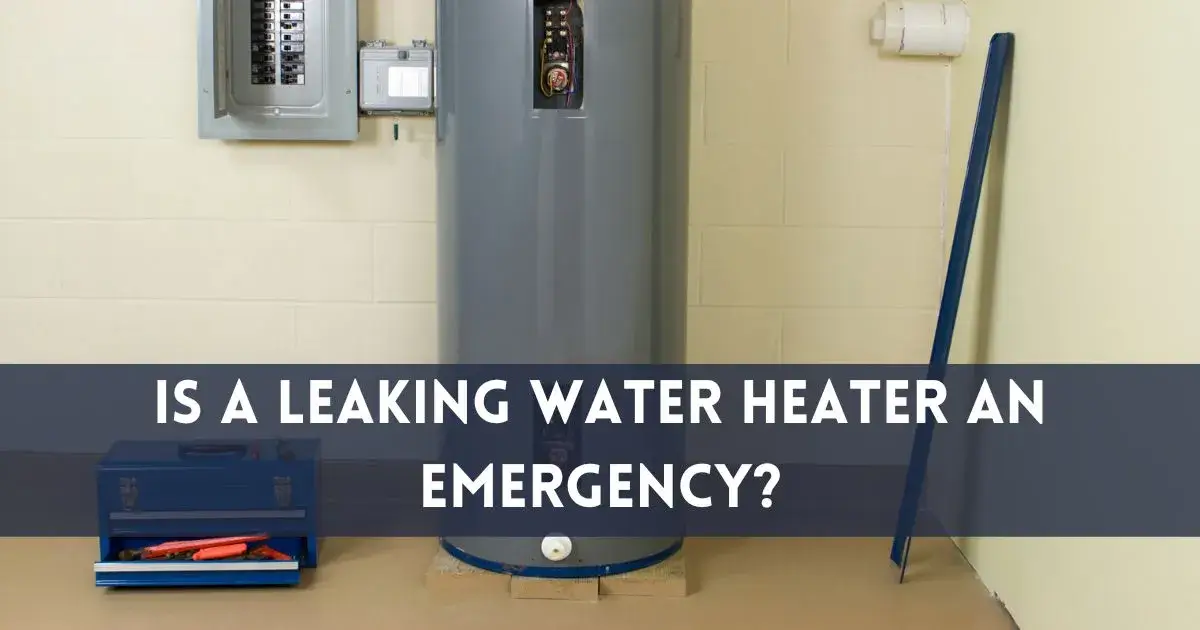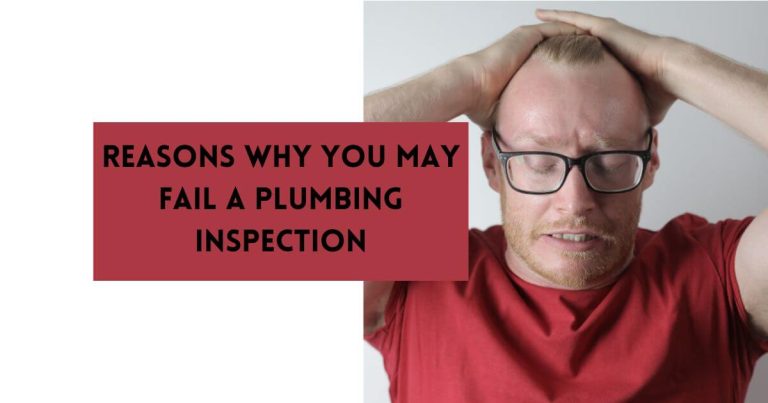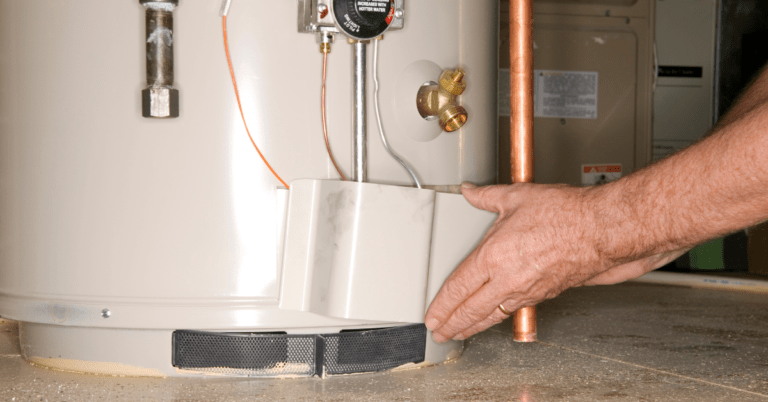Is A Leaking Water Heater An Emergency?
As a home or real estate owner, you will want to avoid a leak in your house. We can agree that having one is as stressful as learning there is one. Right?
However, there are some leaks that most people often see as less important, which brings us to a leaking water heater. How should you treat it?
Is a leaking water heater an emergency? A leaking water heater is not generally considered an emergency on the level of a burst pipe or major flood. However, it should not be ignored. While it may not require immediate attention in the middle of the night, a leaking water heater needs to be addressed promptly to prevent potential water damage and safety hazards from developing.
You need to find the source and decide if you will handle it yourself or contact a professional plumber as soon as possible. Read on to find out how to assess the severity of your water heater leak.
Is A Leaking Water Heater An Emergency?
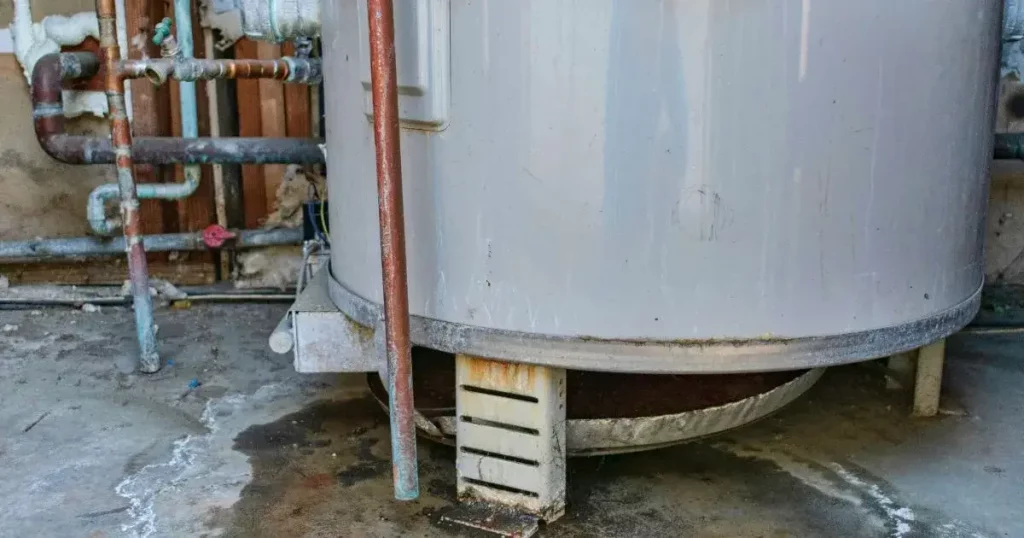
A leaking water heater is an important issue to address, but it doesn’t necessarily mean it’s an emergency, at least in most cases. While the leak can certainly cause damage over time if not taken care of, there may be some flexibility depending on the extent and location of the leak. How can you tell?
Take a look and try to identify where it’s coming from. If the leak is from the bottom of the water heater tank, it usually indicates a serious problem within the tank itself, which qualifies as an emergency repair. It is the same case if the water heater is leaking from a connection that is broken or compromised to the extent that the water leak drain line can’t hold the water. But no urgency is required here if it’s a small leak from a connection, like a valve or fitting, and it just drops. You can address these types of issues later when you get free time.
In any of these situations, however, shut off the water and power supply to the heater as a precautionary measure until you have a proper look or get a professional to take a look. Clean up any standing water to prevent mold issues. If you don’t have time or experience to assess the water tank leak, call a reputable plumber to come by and properly assess what’s happening.
When speaking to the plumber, they’ll be able to tell you if the leak poses an immediate risk of water damage or other problems that would make it more of an emergency and priority. Often, a minor leak can wait a day or two for a repair appointment when containment is possible. Remember to factor in the age of the unit, as it will determine a long-term solution.
So, before you say your water heater leak is an emergency, check where and how the unit leaks. It is not an emergency if it is just some drops from a connection. You can address it later when you have time. However, suppose the unit is leaking from the walls or the bottom. In that case, if the leaking water is too much, the overflow drain fills up, or the water is spraying away from the heater; this emergency requires immediate action.
You need to take precautionary measures to prevent damage. Some of these steps include;
- Turn off the water heater breaker.
- Turn off the water supply to the water heater.
These two will help reduce the potential damage risk and protect you and the water heater.
What Should You Do When You Have A Leaking Water Heater
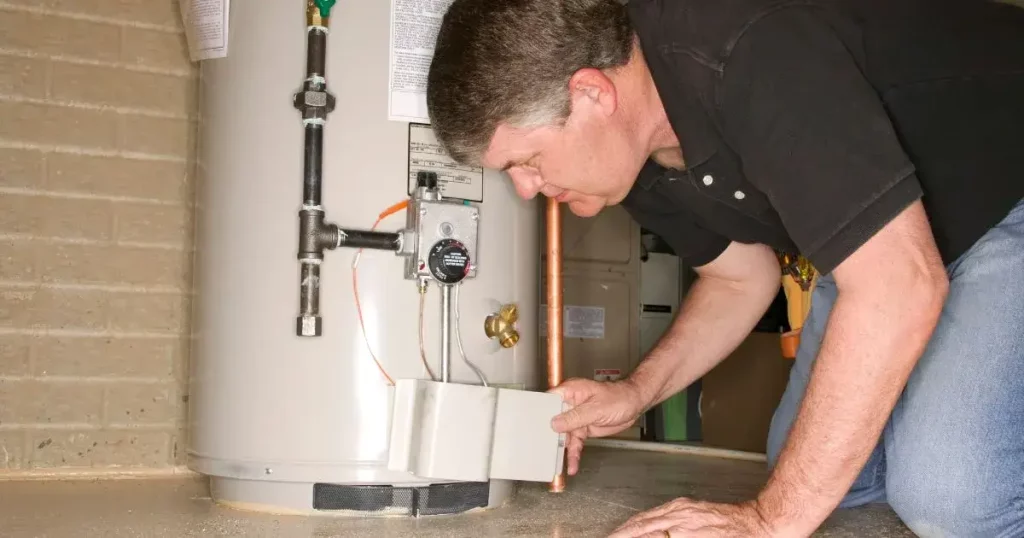
While a leaking water heater might not be an emergency requiring immediate action, you still need to handle the problem later to avoid water damage. Here are some of the things you need to do as you work to fix the leak.
Checking for Leaks
One of the most common water heater problems is leaks. Over time, connections and valves can develop small cracks or breaks that allow water to escape. When noticing water around your water heater, the first step is to inspect all joints and connections for leaks. Carefully wipe down the hot and cold water lines with a cloth to check for any signs of moisture. Minor leaks can be repaired by replacing flexible connectors.
Monitoring Water Pressure
Proper water pressure is essential for your water heater to function correctly. Use a water pressure gauge attached to an outside spigot or the water heater itself to check pressure levels. Pressure higher than 80 psi or noticeably dropping pressure could indicate other plumbing issues affecting the water heater.
Inspecting the T&P Valve
The temperature and pressure (T&P) valve is a critical safety component. Make sure the T&P valve is intact and has a pipe directing discharge outside. If capped or corroded, this could lead to dangerous over-pressurizing of the water tank.
Turn Off the Water and Power
If your inspection finds no obvious issues but the water is still leaking, it’s time to turn off the water and power supply to the water heater. Completely shutting it down can help isolate whether the problem lies with the water heater unit itself or elsewhere in the plumbing.
- First, locate the water shut-off valves for the cold water line and nearby fixtures.
- Fully turn the cold water supply valve to the “off” position. This prevents any water from entering the water heater tank.
- Next, locate the circuit breaker or fuse for the electrical circuit powering the water heater.
- Flip the dedicated breaker to the “off” position for an electric model. If it’s a gas heater, simply turn off the gas supply line valve.
Testing the Ignition and Burners
For gas water heaters, check that the pilot light is igniting and the main burners are heating properly when hot water is demanded. Issues like faulty gas valves or clogged burners can result in inefficient or no heating. Professional service may be required for gas water heater problems.
Clean Up The Water
If leak testing reveals water accumulates in the drain pan, it must be cleaned. Remove the drain plug or valve at the bottom of the tank and drain all standing water. For major leaks, further disassembly or replacement may be necessary.
Get Professional Help
Certain problems like faulty gas valves, thermostat issues, or cracks in the tank require expertise to diagnose and repair properly. Signs your water heater may need professional attention include;
- repeated problems,
- lack of hot water, or
- flaming/smoking from the unit.
Don’t hesitate to call an experienced plumber if initial troubleshooting doesn’t solve the problem. Catching water heater issues early can prevent more serious and costly repairs down the line.
Related: How Much Does Water Heater Flush Cost? Here’s the Breakdown
FAQs
Here are some related questions that might interest you.
Can a leaking water heater burst?
Yes, a leaking water heater can burst if the leak is not addressed. A tank can burst from over-pressurization if the temperature and pressure valve fails or becomes blocked. Catching leaks early helps avoid this rare but possible situation.
How long will a hot water heater last once it starts leaking?
It depends on the location and severity of the leak, but generally, a water heater shouldn’t be expected to last much longer than 6 months to 1 year after signs of leaking begin. The leak may accelerate tank corrosion and damage internal components over time.
Does a leaking water heater mean it needs to be replaced?
That is not always the case, as minor leaks can sometimes be repaired depending on the heater’s age and overall condition. However, leaks from the bottom of the tank often indicate issues with the lining that cannot be fixed, requiring replacement for safety and to prevent further water damage.
Conclusion
Is a leaking water heater an emergency? In most cases, a leaking water heater is not considered a true emergency. However, it shouldn’t be ignored, as leaks can cause water damage over time if not addressed. The first step is to inspect the leak and consult a plumber if needed. Minor leaks may require a day or two for repair. However, if the leak poses an immediate risk of damage or the water heater is older, it may need prompt attention. Proper response depends on the specific situation, so consulting a professional is advisable.

